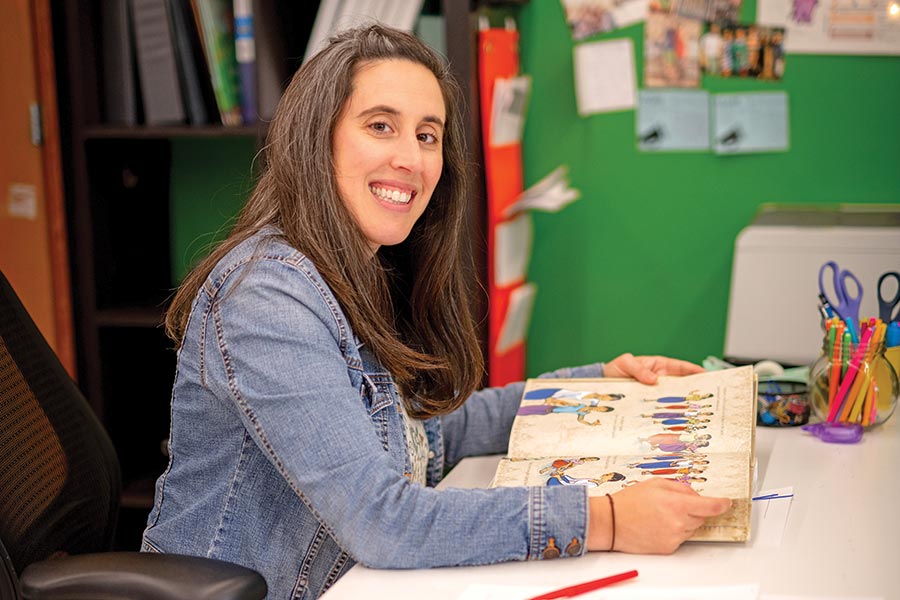THEIR LIFE'S WORK
Taking the Leap
Kate Birbilis '06 combined her passion for teaching and international exploration by working overseas.
by Joanie Eppinga

"I just decided to take that opportunity," says Kate Birbilis '06. She's talking about moving abroad to teach — in Indonesia.
Birbilis knew little about the country, but she'd spent her junior year at Nazareth studying in Australia, and "that built my confidence in my ability to travel alone," she says. Birbilis wanted to keep exploring.
She also wanted to continue her career as a teacher. So, she joined Educators Overseas, which she calls a "dating site" for educators who want to travel. Within a day, Birbilis says, she was matched with a school in Cirebon, Indonesia — and she took a leap of faith.
That's something people in Indonesia do commonly, according to Birbilis. "People there are so open and trusting," she says. "It allows you to connect, even if there are language barriers." She tells of a woman who sold lunches from a table stall; after Kate had eaten there three times, the woman invited Birbilis home for dinner with her family and showed her how to cook, Indonesian-style.
Offering another example, Birbilis tells of going to see Ocha, a colleague who had just given birth. Addresses in Indonesia are not always exact, so when Birbilis got to the neighborhood, she asked some children if they knew where Ocha lived. Directed to a house, Birbilis was welcomed in by an elderly woman but saw no sign of her colleague. Birbilis assumed she was nursing the baby or napping. The elderly woman gave Birbilis tea, and later a meal. They couldn't talk much, but they smiled. Finally, Birbilis asked, "Where is Ocha?" The woman replied, "I am Ocha!" The two women had the same name, and although this Ocha had no idea why Birbilis was there, she offered warm hospitality.
On Birbilis' second assignment, in Kuala Lumpur in Malaysia, she found that the food and the language were similar to those in Indonesia, but this was a much larger and more multicultural city. And, while in Indonesia Birbilis had taught first and fifth grades, in Malaysia the majority of her students were those with autism and other disabilities. "It's not like in the U.S.," Birbilis says. "There are no laws protecting people with disabilities. But that also meant there was no bureaucratic red tape, and the possibilities of what you could do with students were endless." She says classes could go out and have real-life experiences several days a week.
Returning to the States seven years later, Birbilis says she experienced reverse culture shock. "People talked about themselves a lot and expressed their opinions!" she says. "I wasn't used to that anymore, or to all the compliance enforcement at school." Nonetheless, Birbilis enjoys working for KIPP Bay Area Public Schools. Her team has created programs for students with autism, and Birbilis has been hired as a program specialist across the region. Will she and her fiancé, who is from India, stick around?
"Once I've got my programs up and running strong," says Birbilis, "it's not impossible that we'd go to another country. I'm thinking about working abroad again all the time!"
Joanie Eppinga is a writer and editor in Madison, Wisc. Photo by Chris Gill.